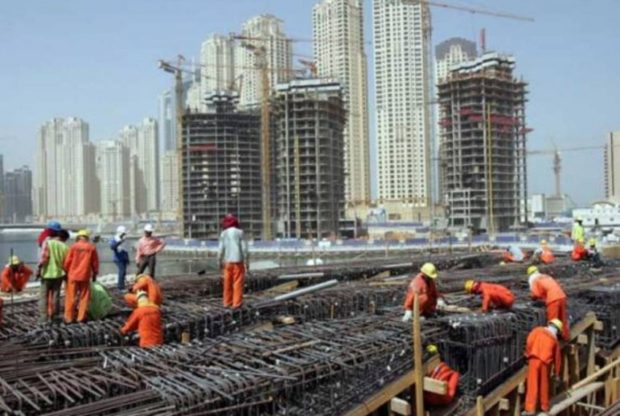
Covid-19 resurgence bringing renewed challenges for India; GDP growth seen at 9.5%: Fitch
PTI, May 6, 2021, 3:43 PM IST

New Delhi: The spiralling crisis from resurgence of Covid-19 cases in India has dented support for the ruling BJP but voter support for Prime Minister Narendra Modi and his party will remain strong over the coming quarters and through this humanitarian crisis, Fitch Solutions said Thursday.
The sudden and steep surge in the number of coronavirus cases – the highest-ever 4,12,262 new infections and a record 3,980 daily death toll in a day – has swamped the health system, which seemed to have collapsed.
While containment measures will weigh on India’s ongoing economic recovery, the localised nature of restrictions means that the actual impact is likely to be much less severe relative to April-June 2020 when a strict nationwide lockdown was imposed, Fitch Solutions said.
It forecasted real GDP to grow 9.5 per cent in 2021-22 (April 2021 to March 2022).
Risks to this forecast are to the downside, as the surge in new daily Covid-19 caseloads will most likely see an extension and expansion of lockdowns, it said adding that the resurgence of Covid-19 cases exposed cracks in the Indian healthcare system.
“While there appears to be signs that the spiralling Covid-19 crisis in India has dented support for the ruling BJP, we maintain our view that voter support for Prime Minister Modi and the BJP will remain strong over the coming quarters and through this humanitarian crisis,” Fitch Solutions said.
This second wave in India has been widely attributed to the B.1.1.7 variant – first identified in the UK – which had ramped up cases in Punjab. Another possible culprit is a homegrown variant, B.1.617, with two worrying mutations that originated in Maharashtra, the worst affected state.
“In addition to this, in India, a year of Covid-19 fatigue gave way to an ill-advised euphoria over herd immunity as cases began to dip in January 2021.
“Inadequate government measures and people not adhering to public health guidelines, such as wearing face masks and maintaining social distancing, are also the main reasons for India’s upward tick in infections,” it said.
It added that a number of political, social and religious events and elections for local bodies in multiple states and preparation for Assembly elections in others also created an opportunity for the virus to move fast.
Fitch Solutions said that in March this year, a few weeks before the new surge, Health Minister Harsh Vardhan, who is also a physician, asserted that India was in the “endgame” of the Covid-19 pandemic, justifying the government’s decision to export medical resources to other countries.
India exported around 193 million doses of vaccines.
Fitch Solutions said “the perception that Prime Minister Narendra Modi’s administration has considerably mismanaged the Covid-19 crisis will weigh on his and the Bharatiya Janata Party’s (BJP) popularity somewhat. Some of this erosion in popularity is evidenced in the state elections”.
“A less-than-stellar performance at these polls adds to the political challenges the BJP had been facing in recent months, which include the anti-farm reform protests by farmers and anti-BJP government sentiment on social media platform Twitter amid the resurgence in Covid-19 cases, which the government has sought to suppress.
“For now, however, we are cautious against concluding that the BJP’s support has weakened across the country, given Modi’s strong personality-led support across the country, which we believe can still sustain through this humanitarian crisis,” it said.
With 8.5 hospital beds per 10,000 population and eight physicians per 10,000, the country’s healthcare sector is not equipped for such a crisis. Hospitals across the country have filled to capacity and in addition to oxygen running out, intensive care units are operating at full capacity and nearly all in the country ventilators are in use.
“Despite surging infections, an overburdened healthcare system, and non-stop burial and crematorium activity, the Modi administration remains resistant to imposing a stringent sweeping nationwide lockdown the likes of Q1FY21 (April 2020-March 2021).
“This was due to considerations around the economic damage another such lockdown would cause,” it said.
The onus of the pandemic containment has hence been shifted to the state governments, Fitch added.
As of early May 2021, at least 11 states and Union Territories have imposed some level of lockdowns in localised high-risk areas, ranging from night curfews, weekend lockdowns and strict lockdowns over a multi-week period, in an attempt to slow the spread of the virus.
Udayavani is now on Telegram. Click here to join our channel and stay updated with the latest news.
Top News

Related Articles More

GST on old used cars only when sale price higher than depreciated value

FPI inflows into Indian equities drop sharply in 2024; rebound anticipated in 2025

Rewind 2024: Mutual fund industry on a high; asset surges Rs 17 lakh crore this year

Epigamia founder Rohan Mirchandani dies of cardiac arrest at age 42

Lohia Auto launches EV brand ‘Youdha’, aims to sell 3 lakh vehicles by 2027
MUST WATCH
Latest Additions

Haven’t been disciplined enough to stick in there: Kohli on his outside off-stump troubles

UP: Teacher booked for beating class 6 student over wearing cap to school

2024: Govt moves ahead with simultaneous polls plan; India holds largest democratic exercise

GST on old used cars only when sale price higher than depreciated value

Mysterious explosions, bomb threat spree, extortion calls kept Delhi Police on toes in 2024
Thanks for visiting Udayavani
You seem to have an Ad Blocker on.
To continue reading, please turn it off or whitelist Udayavani.






















